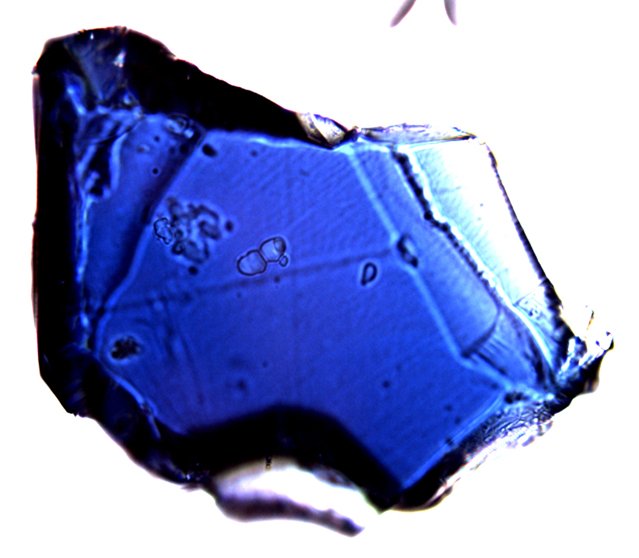Hello wonderful people on #Steemit! A very warm greetings to one and all present here. In today's article, we're going to be discussing about the most likely origin of water on our planet and we're also going to discuss about what exactly brought this beautiful blue elements to our planet!

Hope you people will read my article and provide your valuable suggestions and thoughts by commenting below. So, without any further delay let us jump into my article!!
So by now you probably have heard of at least one or may be even a couple of theories on what actually brought water, the blue stuff on the surface to our planet. We obviously take it for granted. But it's actually surprisingly rare to find a planet that has so much on the surface especially in a liquid form. Now what is interesting is that for the longest time we actually thought it was either asteroids or comets or even just some large collisions bringing the elements through essentially delivery by colliding straight on with our planet and it does make sense right?

But then in years we've studied two meteorite and we've even studied comets and discovered that the water composition of that particular water is actually different from the water we have on earth. Specifically, the elements that you would normally find in between the molecules were just not the same and then we actually looked at another object specifically the moon and discovered that the water on the moon was actually almost identical to the water on Earth which employs one thing that they came from the same object. They basically start as a single object and separated into two parts! So, we know that water may have already been on both of these objects and or something brought water to moon and Earth from space.

Well, assuming that this water is actually from the same source, it's actually or was present on earth and the moon from the beginning. In other words it's coming from the inside. So let's go back a little bit and think of the early solar system collision between Earth and Theia which most likely created our moon. This collision basically ended up in the creation of Earth and the moon and their composition for this reason is actually pretty much the same. Inside of Earth at this point we started getting these layers of various deposits, on top we had something called olivine which is actually a very common mineral that can be found pretty much anywhere in the solar system. It's a very interesting rock which looks like basically a slightly greenish rock that contains Silicon oxides, some magnesium and some iron. But if you actually look at this rock and if you start basically applying more pressure to it and also more temperature it will start transforming into other stuff and this is where things get really interesting!

First of all, we actually discovered a very interesting meteorite known as the Tenham meteorite back in the nineteenth century and this particular picture that you can see above allowed us to study in the minerals that are present in very highly pressurized conditions inside planets. Now we don't really know exactly where this meteorite came from. But it has several really interesting minerals except for olivine that we were able to identify and basically we think that they also exist in our planet Earth and one of such minerals is called ringwoodite. Now there's a whole entry about it in on Wikipedia but below picture is what ringwoodite looks like. It is blue and it's blue for a reason. Now its composition is not very much different from olivine. It's basically a Silicon oxide with I believe a little bit of magnesium in it.

But the blue stuff is actually a type of a hydroxyl molecule. It's basically a type of a molecule that turns into water. It's OH with a negative charge give it another hydrogen and then it turns into H2O. It becomes water! So this stuff is apparently present inside our planet and specifically it's actually located right at the cross section between 410 and 660 kilometers deep inside the ground. So, as you keep going down lower and lower into the Earth you will first find a lot of olivine and then you'll discover this so-called hydrated layer that is half ringwoodite and half the other mineral and this is essentially where you also discover a tremendous amount of water or a specifically hydroxyl molecule. Even though it may seem unlikely, we've actually even discovered diamonds that came from this particular region that were basically rich in water and this is very unusual because we never thought that there would be so much water present here.

How much water? Well, current estimates put it at two to maybe even four times more than the surface of our planet. In other words if all this water came out and covered the surface of our planet completely we will end up with something that looks like basically very blue. Completely covered by water! Now, this in itself is already pretty unusual and what makes it even more unusual is that we think that this is probably present on other planets as well including planets like Mars, Venus and also obviously our own moon. So, our own moon may actually have a tremendous amount of water inside. The amount of water may be so much that we could totally use this water to essentially have a stable colony that just extracts water from inside the moon's crust or specifically from the upper mantle.

Alright!! So, how do we actually answer the question of where exactly did water come from and what exactly happened here? So a long time ago, basically billions of years ago Earth basically was more or less dry and was still cooling down. It was pretty hot on the surface with lots of volcanoes and lots of lava in it. But as it started cooling down the convection on the inside starts to create things like tectonic plates. Basically the continents started moving and the volcanoes that were formed by interaction of plate tectonics started to essentially bring out the water from deep within the mantle and just like that piece-by-piece droplet by droplet all of this water got extracted from within and ended up on the surface of our planet making it more and more hydrated with every eruption and eventually all of this resulted in what we know as Earth today!

We know this is actually a completely different picture from what we had in mind before. Definitely not something that came from comets or from asteroids! It's most likely that the water actually came from within our planet and this changes the picture entirely because it also changes the way we think about planets and what constitutes a habitable planet? It's proves that any planet can be habitable, we just have to find a way to extract the water from within or find planets that found a way to extract their own water from the inside! So, it seems that the water is basically present everywhere already. But sometimes it's trapped inside and sometimes it gets stuck there without any means of being released.

Our planet found a way to release the water on the surface and thus we ended up with this beautiful ocean that we see today and obviously this led to the creation of life because all life started inside of this beautiful liquid ocean and so for us to basically find other exoplanets that may have led to the ocean on the surface; we need to start understanding the internal structure of our planet Earth a little better and find a way to basically study these minerals that we have on the inside and also discover a way that they convert from one to another and find a way to release the water onto the surface. So, there's still no actual good explanation for any of this. It's just a theory that seems to indicate that maybe this is where water really came from.
But hopefully in the coming years we'll be able to actually determine with absolute certainty where and how liquid water was actually formed on the planet. For now that's the best theory we have and it's the one that I honestly think will probably change our understanding of the universe and also help us find other exoplanets that are habitable. Anyway that's all I wanted to discuss about in this article. Thank you so much for reading this article guys and if you've enjoyed reading the information in this article, don't forget to Upvote and Resteem for those who enjoys reading space articles and wants to learn more through the information provided here!!



You received a 10.0% upvote since you are not yet a member of geopolis and wrote in the category of "geology".
To read more about us and what we do, click here.
https://steemit.com/geopolis/@geopolis/geopolis-the-community-for-global-sciences-update-4
Thank you... :)
So, the moon is probably created from the collision between earth and a planet called Theia? That's wicked. I think that's the most interesting fact I can extract from this article. Good job for the article.
Yes!! It's. For more information you can even read the information of Theia in Wikipedia.
Thank you for the appreciation.. :)
And I strongly believe that most of the planets have water in their depths, and they even think they have life in the depths. As far as I know, the deeper we feel we feel cold and tend to think of air as well. other plains near us, but we do not know where to look.
Yes!! there are many proofs found of water in different forms on different planets. Sometimes as frozen ice like in mars case, sometimes gaseous state like in Jupiter case and also sometimes in liquid state deep beneath the ground surface in different exoplanets which I will discuss in my upcoming posts if time permits! :)
Congratulations @star-vc! You have completed some achievement on Steemit and have been rewarded with new badge(s) :
Click on any badge to view your own Board of Honor on SteemitBoard.
To support your work, I also upvoted your post!
For more information about SteemitBoard, click here
If you no longer want to receive notifications, reply to this comment with the word
STOPDo not miss the last announcement from @steemitboard!
Being A SteemStem Member
Thanks a lot!! :) @steemstem-bot